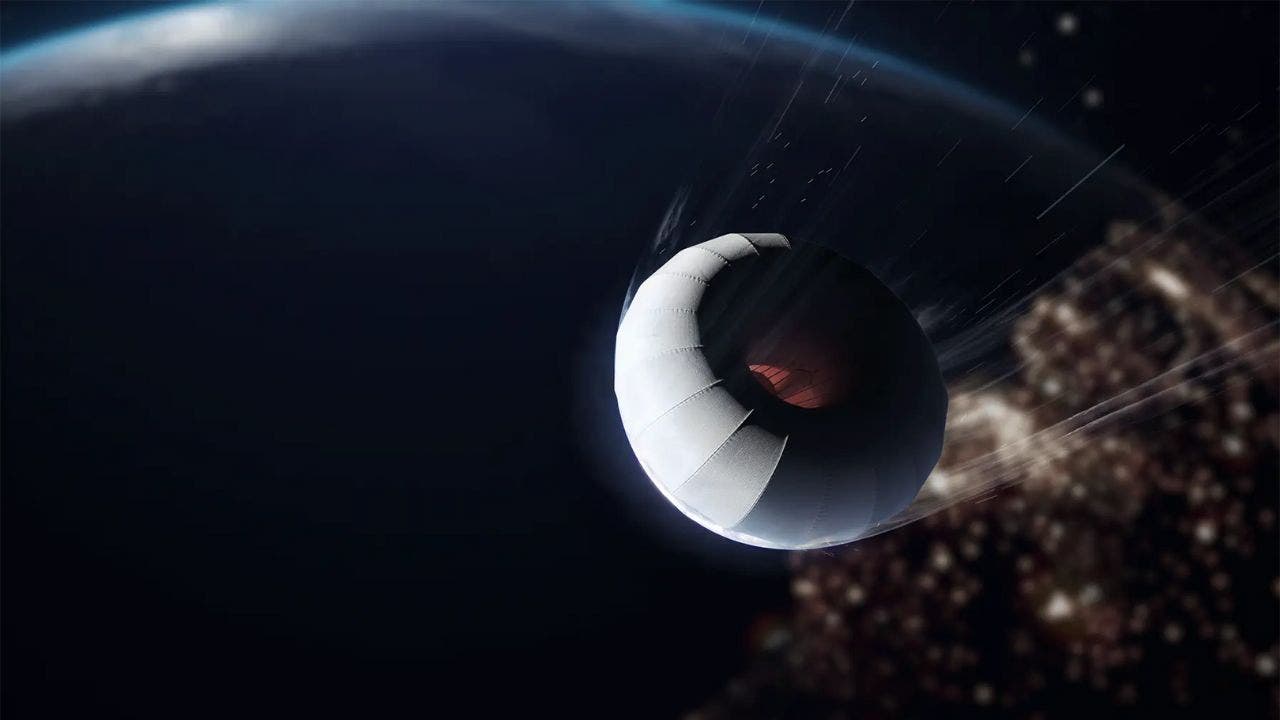Space capsule with innovative inflatable heat shield marks European milestone

Europe is Making Strides in Space Exploration: The Success of Atmos Space Cargo’s Phoenix 1 Mission
While the United States has long been a leader in space exploration and commercial launches, Europe is now making significant strides of its own. Recently, a major milestone was achieved when Atmos Space Cargo, a European startup, successfully completed the first orbital test flight of its Phoenix 1 re-entry space capsule. This mission, which launched from Cape Canaveral, Florida, as part of a SpaceX Falcon 9 rideshare, marks a new chapter in global space logistics.
The Phoenix 1 mission, aboard a SpaceX Falcon 9 rocket, launched from Cape Canaveral, Florida, as part of the Bandwagon-3 rideshare mission. After reaching a 45-degree inclination orbit, the capsule completed one full trip around Earth. A carefully timed de-orbit maneuver then sent Phoenix 1 back toward the planet. During its descent, the capsule deployed an innovative inflatable heat shield, a technology designed by Atmos to protect the capsule during the intense heat and friction of reentry.
As Phoenix 1 reentered Earth’s atmosphere, it transmitted critical system and payload data to ground stations in South America. The capsule splashed down in the Atlantic Ocean, about 1,240 miles off the Brazilian coast. Although recovery of the capsule was not planned due to the remote landing location, the mission’s main objectives were met, and the data collected is now being analyzed to inform future missions.
The success of Phoenix 1 establishes Atmos as the fastest-moving private space logistics company in Europe to conduct an orbital return mission. This achievement demonstrates that Europe is on the path to developing independent, sovereign return capabilities. It also shows that private industry can lead the way in building essential space infrastructure. Atmos’ rapid prototyping approach allowed the team to develop, qualify, and fly Phoenix 1 in less than a year, highlighting the company’s commitment to innovation and hands-on problem-solving.
The Phoenix 1 mission had several core objectives, including collecting in-flight data from the capsule and its subsystems, carrying scientific and commercial payloads, and deploying and testing the inflatable heat shield under real reentry conditions. The data received from the capsule has already contributed to the development of Phoenix 2, the next-generation capsule planned for launch in 2026.
The inflatable heat shield developed by Atmos is a breakthrough in reentry technology. It is lighter, more efficient, and potentially reusable, which could dramatically reduce the cost and complexity of returning cargo from space. Atmos’ development philosophy is based on rapid prototyping and real-world testing, allowing the team to build and test hardware quickly, learn from each iteration, and make improvements based on real data.
Atmos is already working on Phoenix 2, which will include its own propulsion system to control its reentry trajectory and choose its splashdown zone, making recovery much easier and more practical. The company’s vision is to create a flexible, cost-efficient, and reliable logistics platform for space, supporting both commercial and institutional missions.
The success of Phoenix 1 has the potential to assist with many aspects of everyday life. Faster and more affordable access to space means that new technologies, medicines, and materials can be developed and tested in microgravity and then brought back to Earth for use. Universities, startups, and small companies will have more opportunities to conduct experiments in space without the high costs and long wait times that have been barriers in the past.
In conclusion, the success of Phoenix 1 is a sign that space is becoming more accessible and that innovation is happening at an unprecedented pace. Atmos Space Cargo’s achievement paves the way for a future where space logistics are as routine as shipping goods across continents. The next generation of breakthroughs in science and technology may very well start their journey with a ride on a capsule like Phoenix.




